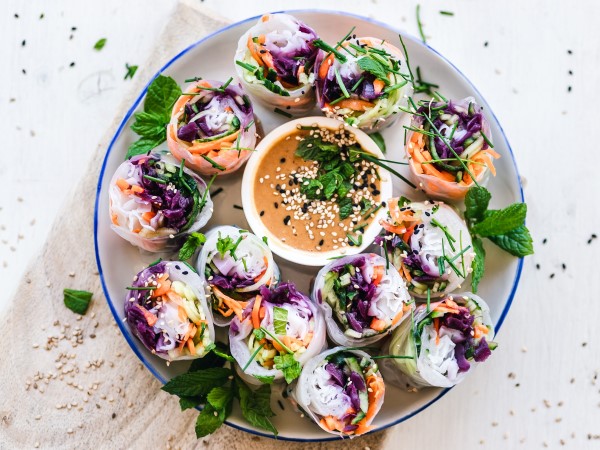Emerging food trends are interesting to follow, and eat! They can often be incorporated into businesses or even spark a new product idea. And its also important to consider any food safety issues that they pose too.
Here are a few trends I’ve noticed, and some of the issues to think about.
Plant based & Vegan food
The climate impact of our food has been a hot topic and plant based foods are promoted to reduce the environmental impact of our diets. Many plant based and vegan products are emerging especially in hospitality and retail. Swapping out the animal protein for plant protein is the easiest place to start. For example vegan sausages in a traditionally meat dish. Nut milks and yoghurts are widely available too. Or let the cooks get creative and experiment with mushrooms, jackfruit and beans.
One issue to be aware of is allergens. Plant based products often contain nuts or soy, so read the ingredients carefully to understand them. Hidden ingredients is also an issue, for example honey or fats that would mean its not vegan but may be vegetarian. Or anchovies in Worcestershire sauce mean its not vegan. Separation during cooking should also be considered as some vegans will not want their food cooked on surfaces where meat has been cooked. As with most things, don’t make claims you cant be sure of and provide truthful accurate information so the customer can decide.
Sustainability and Environmentally Conscious Consumers
Following on from more plant based foods, ethical practices are more desired than ever. Locally sourced ingredients, free range meats, regenerative farming practices, plastic free packaging and waste conscious practices are areas where improvements can often be made.
Areas to consider when implementing these are ensuring food suppliers are still appropriately registered as food businesses, and checking out any claims or certifications they promote. For packaging it still needs to be food safe and from an approved supplier not just random internet sales. Manufacturers changing packaging will need to test if it affects the shelf life of your product.
Keto/Paleo/GF DF RSF/Allergy friendly
Many people follow particular diets either by choice or due to intolerances and allergies. Catering for these can often mean fairly simple changes to eliminate troublesome ingredients such as removing gluten from a sauce. Reducing or substituting refined sugar is another option, or substituting commercially available foods like keto bread in the bacon avo breakfast.
Issues to consider are claims and their validity, especially around allergens. Not including an allergen in the ingredients is not enough to claim it is GF/DF or suitable for allergic customers. This is due to the risks of contamination from other ingredients during storage, preparation, cooking and display. Claims require proof, especially on packaged food when customer cant enquire about your practices.
Labelling is also another complex area. Claims like low sugar or high protein must meet the criteria in the code. Sometimes there are no legal definitions, like Keto, but there may be inferred criteria around carbs or sugar. Also bear in mind that removing sugar or salt can affect the shelf life of foods as the water activity is not as low and they can get mouldy and unsafe much quicker. Check the storage instructions and shelf life.
Food as medicine
There has been an increasing focus on health, probably due to the pandemic, and how our food affects immunity and health. Products incorporating certain vitamin sources or herbs and spices have become popular. Ingredients such as turmeric, mushrooms and fermented foods are more widely recognised for their health benefits. Awareness of our unique indigenous ingredients is also rising along with their health benefits. Many of these can be easily incorporated into dishes and menus and products.
Be aware that in this area health claims on labels are hideously complex and need proof and careful study of the food standards code to see what is legally allowed. Also consider the sourcing of ingredients as some wild or foraged plants carry risks if not managed.
Conclusion
Responding to consumer demands and emerging trends is smart business, and many changes can be positive for the environment and people. So I would encourage you to consider any positive changes you can make. Its also smart to be aware of any risks and not make any claims you can’t substantiate or that are not legal. For labelling claims, if in doubt leave it out, as the consumers seeking those options probably already know what the benefits are.

